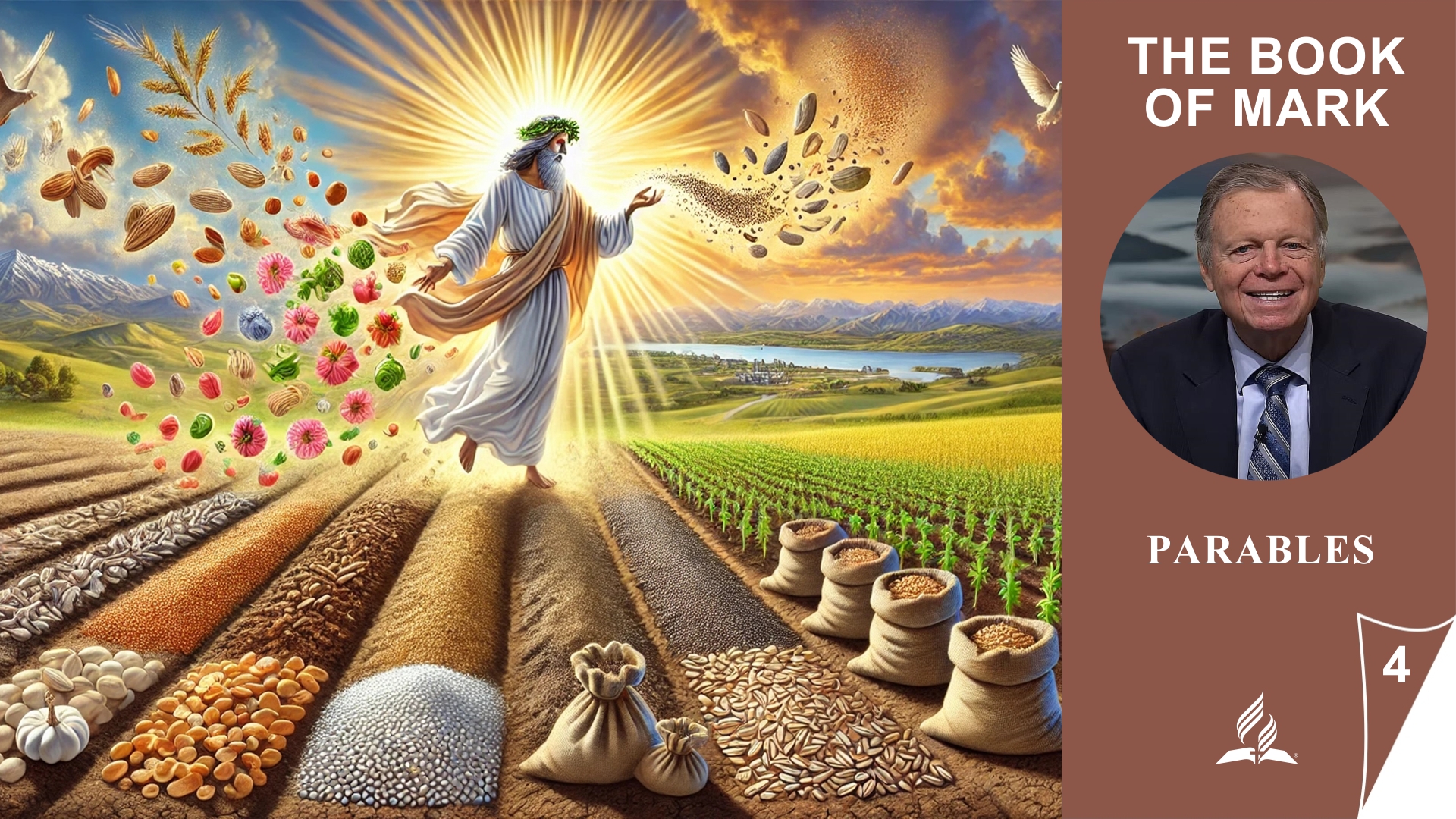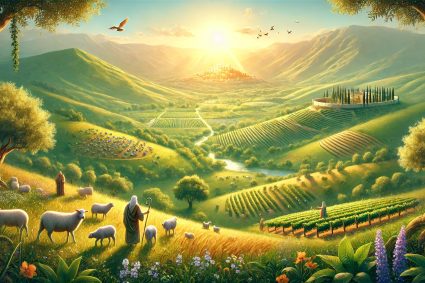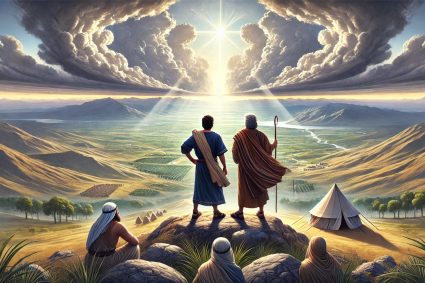
Series THE BOOK OF MARK with Pastor Mark Finley |
Lesson 4.Parables |
The Revelation of the Kingdom of God through Jesus’ Parables
Lesson 4 examines Jesus’ parables in the Gospel of Mark and their deeper significance for the Kingdom of God. These vivid stories, such as the Parable of the Sower, the Lamp, the Growing Seed, and the Mustard Seed, convey central spiritual truths. They illustrate how people respond to God’s word and how the Kingdom of God is based on divine growth. Through these parables, Jesus teaches the principles of faith and the dynamics of divine action. The lesson invites us to understand Jesus’ message and be open to the transformative potential of the gospel.
Memory Text: Mark 4:24.25 – “Then He said to them, ‘Take heed what you hear. With the same measure you use, it will be measured to you; and to you who hear, more will be given. For whoever has, to him more will be given; but whoever does not have, even what he has will be taken away from him’.”
Content:
4.1 The Parable of the Sower
The Importance of Receptivity for the Success of God’s Word
The Parable of the Sower in Mark 4:1-9 describes four types of soil on which the seed falls and the respective fate of the seeds. The seed that falls on the path is immediately eaten by birds. The seed on rocky ground sprouts quickly but withers due to lack of roots. The seed among thorns is choked and cannot thrive. Finally, the seed on good soil yields a rich harvest. This parable emphasizes that the effectiveness of God’s word greatly depends on the receptivity of the hearer’s heart. It highlights the challenges and risks of following Jesus, but also the rich rewards of a fruitful life of faith.
4.2 Jesus’ Interpretation
Jesus’ Explanation of the Parable of the Sower
After telling the Parable of the Sower to a large crowd, Jesus explained it later to a smaller group (Mark 4:13-20). Jesus identifies the seed as “the word of God” and the various soils as different types of listeners. The seed on the path symbolizes people from whom Satan takes away the word before it can take root. The rocky ground represents those who joyfully receive the word but quickly fall away when difficulties arise. The soil with thorns signifies those who hear the word but are choked by worldly worries and riches. Only the good soil symbolizes those who hear, accept, and bear fruit from the word.
4.3 The Reason for the Parables
The Purpose of Jesus’ Parables
Jesus taught in parables to convey deeper spiritual truths that only those open to his message could understand (Mark 4:10-12). At first glance, it might seem that Jesus wanted to keep outsiders in the dark. However, this interpretation does not align with his compassionate and clear actions elsewhere in the Gospel of Mark. In Mark 4, Jesus references Isaiah 6 to illustrate that people often fail to understand due to their own hardness of heart and prejudices. These parables challenge listeners to engage seriously with Jesus’ teachings and to be open to God’s will. Ultimately, understanding depends on the willingness to be transformed by Jesus and his word.
4.4 Lamp and Measuring Basket
Openness and Receptivity to the Truth
In the Parable of the Lamp (Mark 4:21-23), Jesus emphasizes that a lamp is meant to give light and not to be hidden. This symbolizes the truth and the gospel, which should be brought to light and made accessible to all. The absurd questions Jesus poses highlight that it would be pointless to hide a lamp, just as it would be pointless to hide the truth about the Kingdom of God. Jesus means that his message should not remain hidden but be openly proclaimed. He also encourages listeners to pay close attention, as those who accept the light of truth will receive even more, while those who reject it will lose even what they have (Mark 4:24-25).
4.5 Parables of Growing Seed
Growth and Greatness of the Kingdom of God
In the Parable of the Growing Seed (Mark 4:26-29), Jesus emphasizes the natural growth process of the Kingdom of God, which occurs independently of human intervention. The person sows the seed and harvests, but the actual growth is God’s work. This parable underscores that the Kingdom of God has a divine dynamic and does not grow endlessly but reaches a certain climax – the harvest, symbolizing the end of the world.
In the Parable of the Mustard Seed (Mark 4:30-32), the focus is on how something very small grows into something great. The tiny mustard seed that becomes a large plant symbolizes the Kingdom of God, which starts small but grows tremendously. This metaphor shows that despite its humble beginnings, the Kingdom of God will have a significant and worldwide impact. Jesus illustrates that the Kingdom of God, like the mustard seed, possesses an overwhelming and transformative power that exceeds all expectations.
4.6 Summary
Revelation and Growth of the Kingdom of God
Lesson 4 deals with Jesus’ parables in the Gospel of Mark, which convey profound spiritual truths. In the Parable of the Sower (Mark 4:1-20), different types of listeners are represented by various soils, with only the good soil bearing fruit. The Parable of the Lamp (Mark 4:21-25) emphasizes that the truth should come to light and openness to the gospel is rewarded. In the Parable of the Growing Seed (Mark 4:26-29), Jesus shows that the Kingdom of God is based on divine growth, independent of human intervention. Finally, the Parable of the Mustard Seed (Mark 4:30-32) illustrates how the Kingdom of God grows from small beginnings into something great. These parables highlight the principles of the Kingdom of God and the necessity of being open and receptive to its message.
Visited 61 times, 1 visit(s) today






